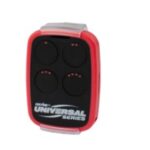Medical care programs are initiatives designed to help individuals and families access necessary healthcare services. These programs are typically funded by government bodies, non-profit organizations, or a combination of both, aiming to reduce financial barriers and improve public health, especially for vulnerable populations. They play a crucial role in societies by ensuring that essential medical services are available to those who might otherwise be unable to afford them.
In Maryland, several medical assistance programs are available to support different demographics and needs. These programs provide a safety net, ensuring that residents have access to vital healthcare services. Applications for these programs can be conveniently filed at various locations, including local health departments, social services departments, doctor’s offices, and hospital social work departments. Let’s explore some key medical care programs in Maryland:
Maryland Children’s Health Insurance Program (MCHP)
The Maryland Children’s Health Insurance Program (MCHP) is dedicated to ensuring that all children in Maryland have access to comprehensive health insurance coverage. Funded through a combination of federal and state resources, MCHP offers full health benefits to children under the age of 19 and pregnant women of any age who meet specific income criteria.
Who is Eligible for MCHP?
- Children under 19 years old who are not eligible for Medicaid.
- Pregnant women of any age.
- Individuals with a countable income at or below 200% of the federal poverty level (or up to 300% with a premium).
- Children with employed parents whose employers do not offer family health insurance.
Even if you currently have health insurance, it is advisable to apply for MCHP, as a dedicated case manager will assess your eligibility and determine if the program can provide better or more affordable coverage for your children or pregnancy-related care.
How to Apply for MCHP?
To apply for MCHP, you need to complete an application and provide the necessary documentation. You can apply through various methods:
- Online: Visit the Maryland Health Connection website at https://www.marylandhealthconnection.gov/.
- Telephone: Call the Maryland Health Benefits Exchange Consolidated Service Center toll-free at (855) 642-8572 or TTY (855) 642-8573.
- In-Person: Visit your local health department or local department of social services.
Required Information for MCHP Application:
- General information about all family members, including names, birth dates, and Social Security numbers.
- Proof of income to verify eligibility based on income guidelines.
- If pregnant, a doctor or nurse’s signed statement confirming the expected delivery date.
Medicaid (Medical Assistance – MA)
Medicaid, also known as Medical Assistance (MA) in Maryland, is a program that helps pay for medical expenses for individuals with limited income and resources. Funded jointly by the federal and state governments, Medicaid ensures that needy and low-income individuals have access to essential healthcare services.
Who is Eligible for Medicaid?
Medicaid eligibility is based on various factors, including income, family size, disability, and age. Generally, it is designed for individuals and families with significant financial need.
How to Apply for Medicaid?
You can apply for Medicaid in Maryland through the following methods:
- Online: Apply via the myDHR portal at https://mydhrbenefits.dhr.state.md.us.
- In-Person: Visit one of the 24 local departments of social services in Maryland.
Medicare Buy-In Program: QMB and SLMB
The Medicare Buy-In Program, encompassing the Qualified Medicare Beneficiary (QMB) and Specified Low-Income Medicare Beneficiary (SLMB) programs, is specifically structured to protect Medicare beneficiaries with low incomes from the financial burdens of Medicare coverage. This includes assistance with out-of-pocket expenses like deductibles and co-payments.
Qualified Medicare Beneficiary (QMB) Program:
The QMB program assists individuals with limited assets (up to $9,090 for individuals and $13,630 for couples) and incomes that do not exceed 100% of the federal poverty level. For those who qualify, the State Medicaid program covers their Medicare Part B premiums and cost-sharing obligations, significantly reducing their healthcare costs.
Specified Low-Income Medicare Beneficiary (SLMB) Program:
The SLMB program is designed for individuals with slightly higher incomes, between 100% and 120% of the federal poverty level, and the same asset limits as QMB ($9,090 for individuals and $13,630 for couples). SLMB primarily covers the Medicare Part B premium, offering financial relief to those who qualify.
Long Term Care Medical Assistance (LTC)
Long Term Care Medical Assistance (LTC) is a program specifically created to help low-income individuals cover the high costs associated with nursing home care. Eligibility for LTC involves specific requirements, including a review of financial resources going back five years prior to the application date.
Who is Eligible for LTC?
Eligibility for LTC is primarily based on low income and the need for nursing home level care. The program also examines the applicant’s financial history over the past five years to prevent asset transfers designed to gain eligibility.
How to Apply for LTC?
Applications for Long Term Care Medical Assistance can be submitted through these channels:
- Online: Apply through the myDHR portal at https://mydhrbenefits.dhr.state.md.us/.
- Mail: Mail your application to your local health department or local department of social services, or directly to the Office of Long Term Care:
Office of Long Term Care
746 Frederick Road
Catonsville, Maryland 21228
(This office covers applications from Baltimore City, Baltimore County, Anne Arundel County, and Prince George’s County).
Forms and Further Resources
For your convenience, here are some downloadable forms and resources related to these programs:
- Specified Low-Income Medicare Beneficiary (SLMB) Application Form
- Long Term Care/Waiver Medical Assistance (LTC) Application Form
- Long Term Care (LTC) Redetermination Application Form
- FIA/2023-MONTHLY INCOME AND ASSET GUIDELINES
Understanding medical care programs is the first step towards accessing the healthcare assistance you or your family may need. These programs are vital resources, ensuring healthcare is within reach for Maryland residents across different life stages and circumstances.
